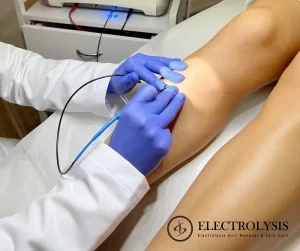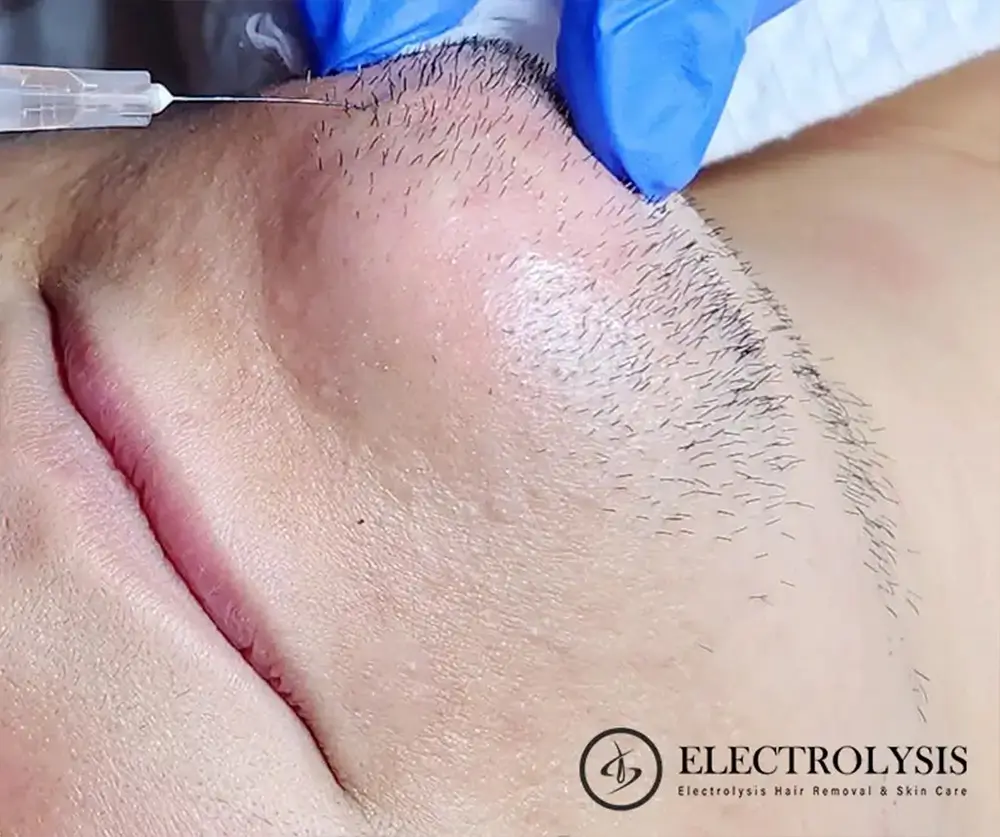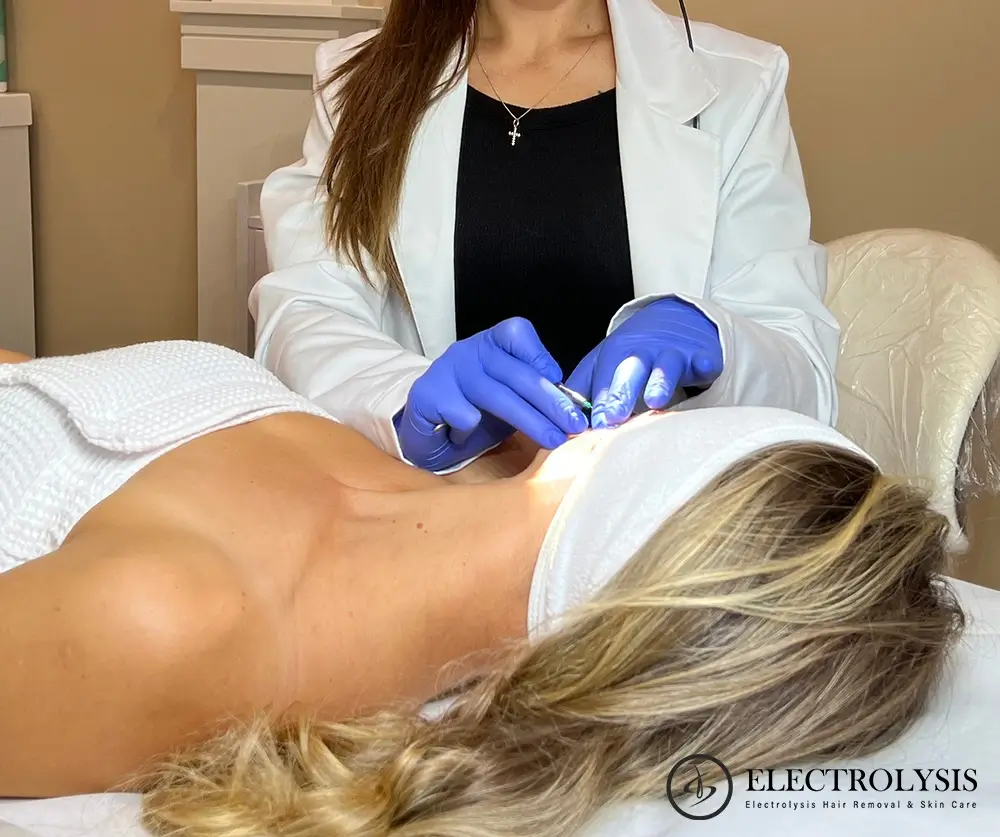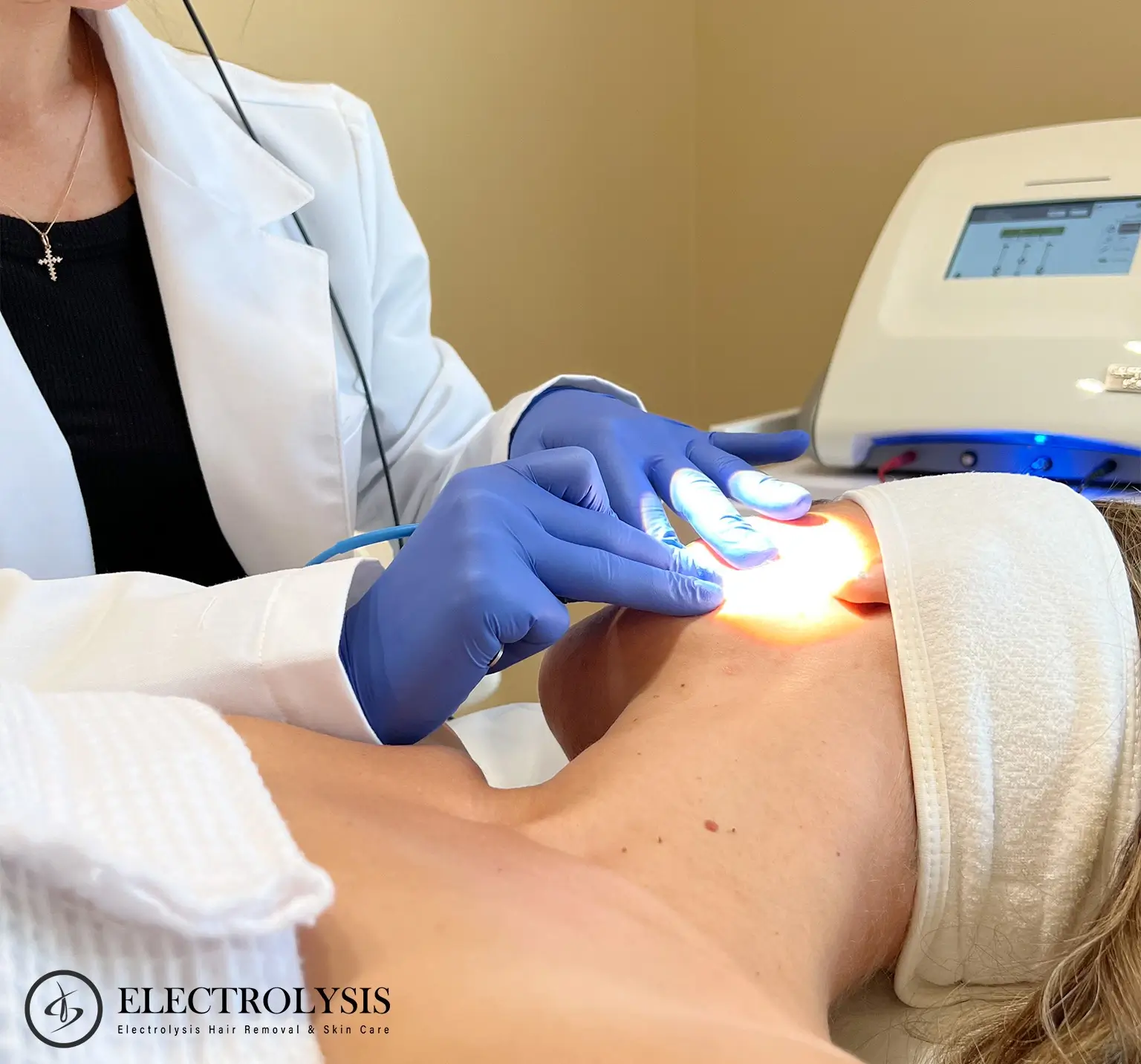Is electrolysis hair removal covered by insurance?
Unwanted hair can be a persistent and bothersome issue for many individuals. While there are various methods for hair removal, electrolysis is one of the most effective and long-lasting options available. One common question that often arises is whether electrolysis hair removal is covered by insurance.
In general, health insurance companies will not reimburse for electrolysis treatments under any circumstances, as excessive hair growth is considered a cosmetic problem. However, hair removal prior to gender assurance surgery, or clients diagnosed with PCOS (polycystic ovarian syndrome) can be covered by insurance companies on a case-by-case basis. Electrolysis insurance is available exclusively to members who are licensed, trained and for Offices they are specialized in hair removal and those who have all insurances and NPI number and codes.

Electrolysis 100% Permanent Hair Removal & Skin Care sees a lot of clients that require electrolysis for medical conditions. We’ve had transgender patients get approved by several insurance companies. We do not take insurance directly, but we can still help you get reimbursed if you choose to do your electrolysis at our office. To the insurance companies, we’re simply an out of network provider, which means that you’ll pay us, at the end of your session or a few days later we’ll give you an invoice to submit to the insurance company, and then the insurance company will reimburse directly to you, full amount or a percentage from total amount you pay us. Prior to having electrolysis, you’ll need to contact your insurance company’s customer service department and tell them that you’re having surgery and that you have a medical need to get the hair removed prior to surgery. The insurance company will require the same documents that you need to qualify for surgery, including the two letters mandated by WPATH guidelines, along with a ‘letter of medical necessity’ from your surgeon, stating that it is required. Your surgeon is familiar with the content and format of this letter and knows how to draft it. There have also been occasions where we were asked to submit a letter from our side, in addition to your surgeon’s letter, and we already have one prepared.
After you submit this information to your insurance company, they should give you a letter stating that you have prior authorization to get the work done. Once you’ve received your prior authorization, you can start coming in to get work done. Again, you pay us, we give you an invoice, and then you submit that invoice to the insurance company for reimbursement, after which, they send you a check. You need to be timely with submission of your invoices, or the insurance company may deny reimbursement even with prior authorization. For individuals in need of medically necessary hair removal for reasons other than those mentioned above, obtaining reimbursement coverage from your insurance company may be an uphill battle. However, with persistence, it is possible to secure similar coverage.
Addressing unwanted hair can be a significant concern for many individuals, and electrolysis stands out as a highly effective and long-lasting solution. Unfortunately, the general rule is that most health insurance companies do not cover electrolysis treatments, primarily considering excessive hair growth as a cosmetic issue. However, there are exceptions.
For those preparing for gender assurance surgery or diagnosed with conditions such as PCOS, there may be a glimmer of hope for insurance coverage on a case-by-case basis. Electrolysis insurance, designed for licensed and specialized professionals, exists but remains a specialized option.
At Electrolysis 100% Permanent Hair Removal & Skin Care, we’ve assisted numerous clients in navigating the insurance process, particularly those with medical needs. While we don’t directly accept insurance, we can guide you through the reimbursement process.






